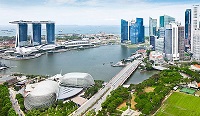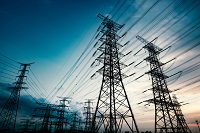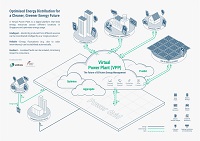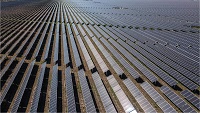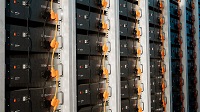For more information, please refer to:
- With the evolving energy landscape and Singapore’s transition towards greater sustainability in power generation, new growth opportunities are emerging in the domestic and regional clean energy sector.
- A Clean Energy Jobs-Skills Insights (JSI) analysis jointly developed by SkillsFuture Singapore (SSG)[1] and the Energy Market Authority (EMA) has identified the key growth areas emerging from shifts in the energy landscape, and the skills with high growth in demand. These insights will empower Singaporeans to position themselves to capture these growth opportunities of the future.
- A deep dive study on clean energy sector opportunities identified three key areas of growth viz solar, energy storage systems and smart grids. As Singapore’s most viable source of renewable energy, Singapore has been ramping up solar deployment across available spaces from temporary vacant land to water bodies. To mitigate the intermittent nature of solar energy, Singapore is also deploying energy storage systems which enable energy to be stored and then released when needed for power supply reliability. The increasing need for digitalisation and the importance of managing more diverse sources of renewable energy while ensuring grid stability and reliability has necessitated the need for smart grids.
- This translates into opportunities such as (i) conventional and non-conventional deployment of solar photovoltaics (PVs), e.g. floating PVs and Building-Integrated PVs (BIPV); (ii) Engineering, Procurement and Construction (EPC) and project management services for the deployment of battery ESS; and (iii) management of distributed energy resources. Refer to Table 1 for more information.
- Conventional and non-conventional PV deployment such as floating and BIPV
- Solar PV Project Management for regional projects
- Battery ESS EPC and project management services
- ESS Recycling/ Repurposing of used EV batteries for grid applications
- ESS for microgrids
- Project Management and Design Services Export to the region
- Management of Distributed Energy Resources (DERs)
- Development of innovative hardware and software solutions (e.g. Solid State Transformer) for bi-directional grids
- As more energy companies green their operations or set up businesses in the clean energy space, they have to ensure their operations and business strategies comply with the latest regulations and meet the environmental standards that their stakeholders expect of them. Hence, their workforce increasingly needs new skills to adapt to their new roles. This has sparked the need for new green skills such as Sustainability Management, Sustainability Reporting, and Environmental Sustainability Management. As an indicator, the local workforce possessing such green skills has increased by 20% since 2021, according to data from SSG and LinkedIn. These skills are needed by new and emerging green job roles in the areas of Strategy & Compliance[2], e.g. Sustainability Manager, and Energy & the Environment[3], e.g. Environmental Impact Consultant.
- Existing jobs are also evolving with the green energy transition. Existing engineering and operations job roles are changing to involve more green processes or new technologies. This can be seen in functions such as process design, regulatory compliance, and corrective maintenance management.
- As companies make the green transition, they are also adopting digitalisation and automation. The digital and Industry 4.0 skills with high growth in demand across the three areas of Solar, Energy Storage Systems, and Smart Grids include Programming & Coding, Data Analytics, Process Improvement & Optimisation, and Automated Process Control. Clean energy professionals globally[4] possessing such skills have risen by 12% since 2021, according to data from SSG and LinkedIn. In Singapore, job roles like Power Systems Engineers increasingly need to possess digital skills such as Data Analytics to perform circuit analysis and simulation.
- As part of our energy transition, companies are encouraged to upskill their employees with the relevant capabilities to navigate the new and exciting energy landscape. Individuals seeking employment or training opportunities may tap on Workforce Singapore’s Career Conversion Programme for Clean and Renewable Professionals and Sustainability Professionals to reskill themselves. Workers looking for modular Continuing Education & Training (CET) courses may approach the Singapore Institute of Power and Gas, which offer courses in emerging areas such as solar and ESS. SIPG is a CET Centre for the Energy and Power sector. Institutes of Higher Learning also offer relevant CET courses, such as the NUS Energy Storage Systems for Grid Applications and Grid Connected Inverters and Grid Codes for Solar PV and Wind Energy; and the Temasek Polytechnic’s Specialist Diploma in Sustainability and Energy Management, Grid-connect Solar Photovoltaic System with Battery Storage and Energy Storage Systems.
- In the years ahead, our human capital will play a critical role to support the energy transition in Singapore and the region. We encourage Singaporeans interested in participating in the energy transition to leverage these insights and seize the emerging opportunities in the clean energy sector.
Key Areas of Growth and Opportunities for Singapore
Table 1: Key Areas of Growth for Singapore
| Solar | Energy Storage Systems (ESS) | Smart Grid |
|---|---|---|
Green Skills for Existing and New Job Roles
High Growth Digital and Industry 4.0 Skills
Upskilling for Energy Transition
[1] Methodology: Using jobs and skills data from a variety of labour market intelligence platforms, SSG analyses the skills demand through job postings and tracks the high growth jobs and skills locally and globally. SSG also analyses job postings and hiring patterns to anticipate job content changes and skills demand. Skills listed in the JSI are from SSG’s National Jobs-Skills Intelligence engine.
[2] Areas of work include review of green targets (including carbon emissions), ensuring business activities meet regulatory standards and green targets, devising green business strategies and advising stakeholders on green initiatives.
[3] Areas of work include delivering consultancy advice on corporate renewable energy sourcing and environmental sustainability topics, management of proposals and implementation of renewable energy projects.
[4] Due to the relatively smaller local pool of professionals, a global pool of 284,000 professionals was used in the analysis to derive the skills growth trends from which Singapore can take reference. Countries included in the analysis are United States, European Union, Korea, Japan and Singapore.
About the Energy Market Authority
The Energy Market Authority (EMA) is a statutory board under the Singapore Ministry of Trade and Industry. Through our work, we seek to forge a progressive energy landscape for sustained growth. We aim to ensure a reliable and secure energy supply, promote effective competition in the energy market and develop a dynamic energy sector in Singapore. Visit www.ema.gov.sg for more information.
About SkillsFuture Singapore
SkillsFuture Singapore (SSG) drives and coordinates the implementation of the national SkillsFuture movement, promotes a culture of lifelong learning and strengthens the ecosystem of training and adult education in Singapore. Through a holistic system of national SkillsFuture initiatives, SSG enables Singaporeans to take charge of their learning journey in their pursuit of skills mastery. SSG also works with key stakeholders to ensure that students and adults have access to high quality and industry-relevant training that meet the demands of different sectors of the economy for an innovative and productive workforce. For more information, visit www.ssg.gov.sg
